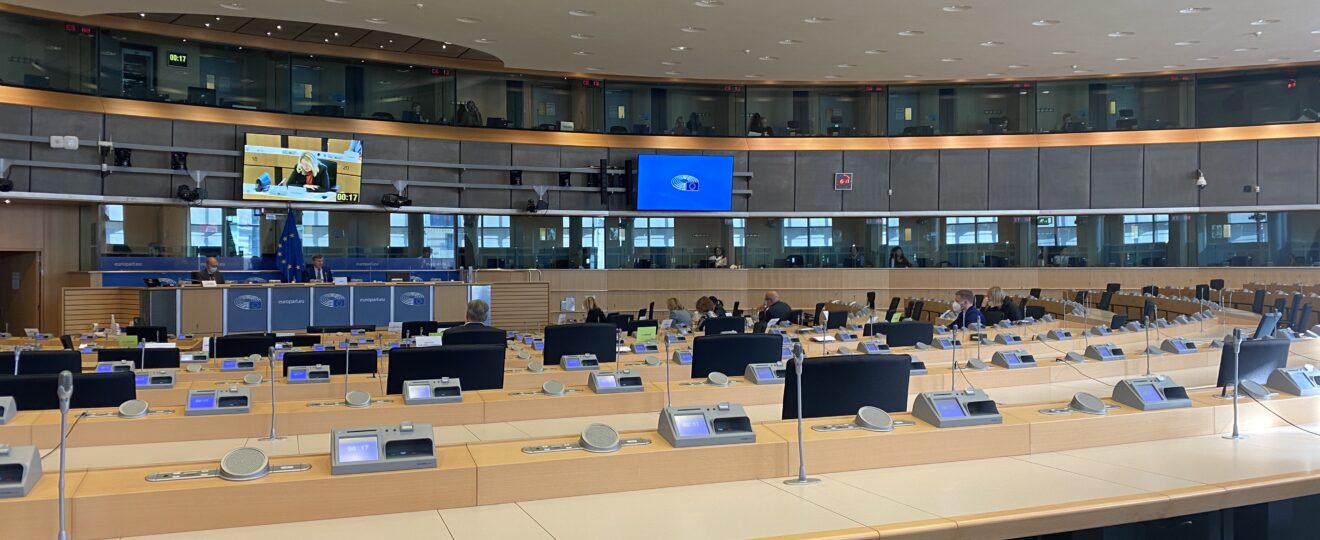MEP Christel Schadlemose addressing committee meeting, 27/10/2021. Photographer: Jamie Szmitz
4/11/2021
By Jamie Szmitz & Johana Kofronova
The European Parliament’s vote on the implementation of new tech rules has been delayed. The Digital Services Act and Digital Markets Act were due to be voted on in Parliament on the 8th of November.
The Digital Services Act is planned to regulate the digital space in a way that ensures the safety of all users within the European Union. The act will hold large social media organisations accountable for removing harmful and illegal content and advises these organisations to be more transparent with algorithms and how they use advertisements. First drafted by the European Commission in December 2020, the DSA has frustrated many of those in the European Commission due to how long the process has taken. Despite this, MEP Christel Schaldemose addressed a committee meeting on the 27th of October by saying they are “still optimistic about finding compromises.”
The decision to delay the vote was said to be due to the visit of Frances Haugen who is a Facebook whistle-blower invited to a committee meeting by the EU. It is hoped that the visit will help give insider views as to how Facebook use their algorithm to present users with content as well as how they respond to harmful and illegal content.
Since the DSA was first outlined, prominent findings and reports have been published on Facebook and other social media organisations. In September 2021, a report was leaked that exposed how Facebook would use their own platforms. The report found that Facebook was not acting quickly enough to remove harmful content as well as having an algorithm which spreads harmful content. Haugen has echoed these claims by telling the House of Commons in the UK that Facebook’s algorithm is “biased towards bad actors” last month. Despite these allegations surfacing, the EU had prior knowledge of the controversies of Facebook. The Deputy Head of the Cabinet of commissioner Vera Jourova, a prominent figure in the makings of the DSA, Daniel Braun confirmed that the Facebook files did not majorly impact the law-making process. “Of course, it creates a lot of visibility, but in terms of our approach, it underlines the urgency and importance of really looking at the algorithms and new approaches we proposed.”









